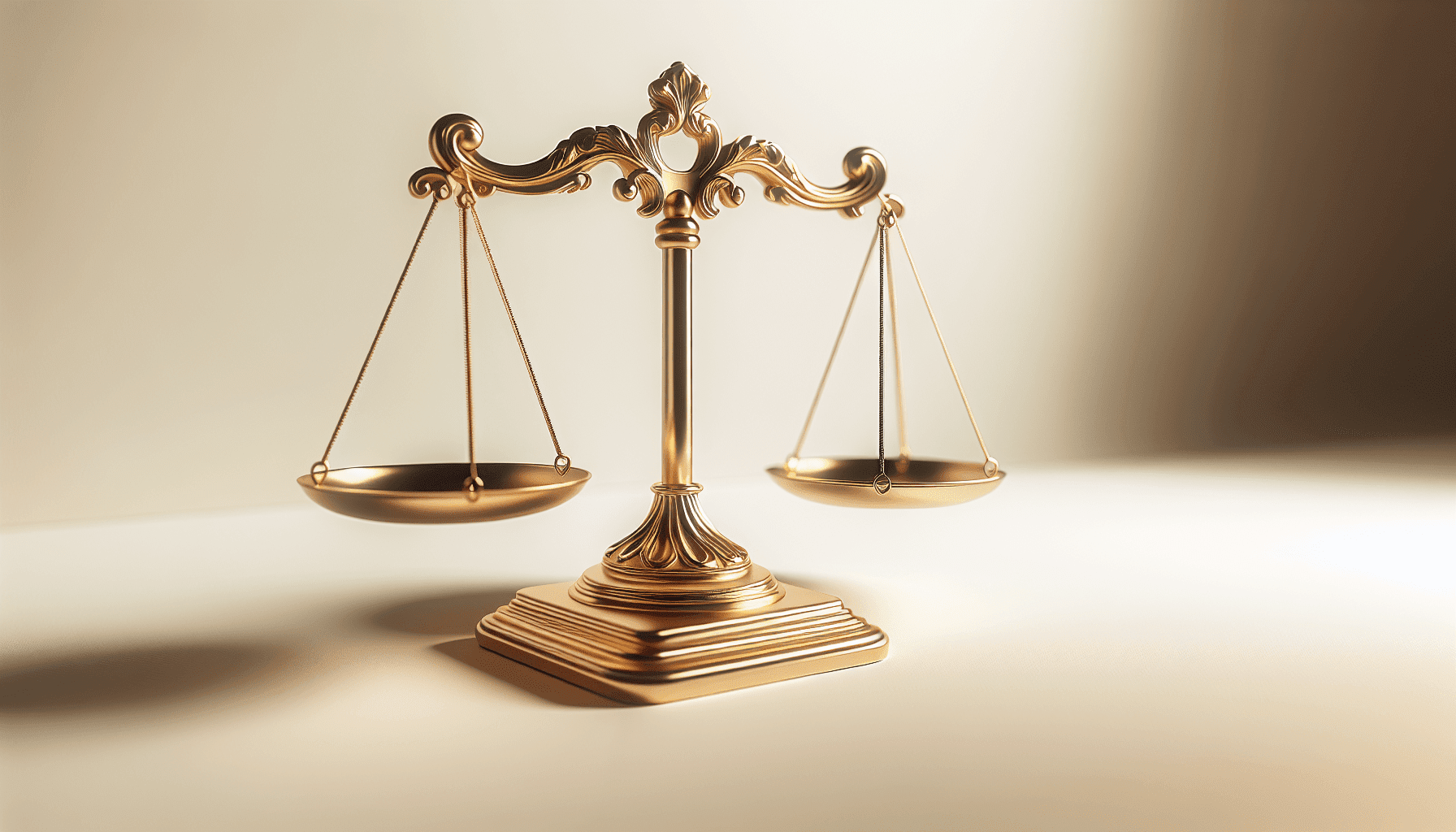Have you ever wondered what a commercial property lawyer does? In this article, we will explore the essential role that a commercial property lawyer plays in the real estate industry. From negotiating contracts to conducting due diligence, they are expertly equipped to navigate the complexities of commercial property transactions. Whether you are a business owner or an investor, understanding the role of a commercial property lawyer is vital in safeguarding your interests and ensuring a smooth and successful transaction process.
Understanding Commercial Property Law
Commercial property law refers to the set of legal rules and regulations that govern transactions and issues related to commercial real estate. This branch of law encompasses various aspects such as property ownership, leasing, development, financing, and disputes. It provides a legal framework for individuals and businesses engaged in buying, selling, leasing, and managing commercial properties.
Definition and Scope of Commercial Property Law
Commercial property law deals with legal matters related to non-residential properties such as office buildings, retail spaces, industrial warehouses, and land used for commercial purposes. It covers a wide range of legal issues, including property ownership, lease agreements, zoning regulations, environmental compliance, construction and development, tenant disputes, and more. This area of law is essential for ensuring fairness, transparency, and adherence to legal requirements in all commercial property transactions.
Common Legal Issues in Commercial Property Transactions
In commercial property transactions, several legal issues can arise that require the expertise of a commercial property lawyer. These include disputes over property title and ownership, breach of contract claims, environmental compliance, zoning restrictions, lease disputes, construction defects, and non-compliance with local, state, and federal regulations. A commercial property lawyer plays a crucial role in navigating these legal challenges, protecting the interests of their clients, and ensuring that all transactions are conducted in accordance with the law.
Role of a Commercial Property Lawyer
A commercial property lawyer is a legal professional who specializes in handling legal matters related to commercial real estate. They provide valuable guidance and support to individuals and businesses involved in commercial property transactions.
Providing Legal Advice and Guidance
One of the primary roles of a commercial property lawyer is to provide legal advice and guidance to their clients. They assist in interpreting complex property laws, contractual obligations, and regulatory requirements. By understanding the specific needs and goals of their clients, they can provide tailored advice that ensures compliance and helps clients make informed decisions.
Negotiating Contracts and Lease Agreements
Commercial property lawyers are skilled negotiators who play a crucial role in drafting and negotiating contracts and lease agreements. They help their clients secure favorable terms and conditions, protect their interests, and avoid potential pitfalls. Whether it’s negotiating lease terms, purchase agreements, or construction contracts, a commercial property lawyer ensures that all legal aspects are covered to safeguard their clients’ rights.
Performing Due Diligence
Due diligence is a critical step in any commercial property transaction. It involves conducting thorough investigations and assessments to identify any potential legal issues or risks associated with a property. Commercial property lawyers are responsible for performing due diligence on behalf of their clients, which may include reviewing property documentation, conducting environmental and zoning assessments, examining liens and easements, and verifying property ownership. Through their extensive expertise, they can provide valuable insights and identify any potential legal challenges or risks that need to be addressed before proceeding with the transaction.
Handling Property Disputes and Litigation
Disputes and conflicts can arise in commercial property transactions, and when they do, a commercial property lawyer is there to handle them. Whether it’s resolving disagreements between parties, representing clients in court, or settling breach of contract claims, these lawyers have the necessary skills and expertise to navigate the legal process effectively. They work to protect their clients’ rights, resolve disputes in a fair and efficient manner, and ensure that the best possible outcome is achieved.
Ensuring Compliance with Laws and Regulations
Commercial property transactions are subject to a wide range of laws and regulations at the local, state, and federal levels. It is the responsibility of a commercial property lawyer to ensure that their clients’ transactions are in full compliance with these legal requirements. They have a deep understanding of the legal framework and keep up-to-date with any changes or new regulations that may impact their clients’ interests. By ensuring compliance, they minimize the risk of non-compliance penalties, legal disputes, and other potential complications.
Skills and Qualifications of a Commercial Property Lawyer
To excel in the field of commercial property law, a lawyer must possess a specific set of skills and qualifications. Here are some essential qualities that a commercial property lawyer should have:
Legal Education and Licensing
Commercial property lawyers must have obtained a law degree from an accredited law school and successfully passed the bar examination to obtain licensing. This educational foundation provides them with a solid understanding of general legal principles and the ability to apply them in the context of commercial property law.
Knowledge of Property Law and Regulations
A deep knowledge and understanding of property law and regulations are essential for a commercial property lawyer. They should be well-versed in various aspects of property law, including real estate transactions, leasing, zoning, land use, environmental regulations, and contract law. This expertise allows them to effectively advise their clients, anticipate potential legal issues, and navigate complex property transactions.
Strong Negotiation and Communication Skills
Negotiation and communication skills are vital for a commercial property lawyer. They must be able to effectively communicate and negotiate on behalf of their clients to secure favorable terms and resolve disputes. These skills enable them to articulate their clients’ interests, persuasively advocate for their positions, and build strong working relationships with other parties involved in the transaction.
Attention to Detail and Analytical Thinking
Commercial property transactions involve numerous legal documents, contracts, and complex information. A commercial property lawyer must have exceptional attention to detail and strong analytical thinking skills to review and analyze these documents effectively. They need to identify any legal risks, resolve inconsistencies, and ensure that all legal requirements are met to protect their clients’ interests.
Experience in Commercial Real Estate
Experience is a valuable asset for any commercial property lawyer. Having practical experience in commercial real estate allows them to anticipate potential challenges, navigate complex transactions, and offer valuable insights to their clients. Experienced lawyers have a deeper understanding of industry practices, market trends, and legal strategies that can help their clients achieve their goals efficiently and effectively.
Working with Clients in Commercial Property Transactions
A commercial property lawyer plays a significant role in assisting clients throughout the entire commercial property transaction process. From the initial consultation to the closing of the deal, their expertise and guidance are essential.
Initial Client Consultation
The first step in working with clients in commercial property transactions is the initial consultation. This is an opportunity for the lawyer to understand the client’s goals, needs, and specific requirements. During this consultation, the lawyer gathers all the necessary information, discusses the legal process, and provides an overview of the services they can offer. It is crucial for the lawyer to build a strong rapport with the client, establish trust, and ensure that the client feels confident in their ability to handle their legal matters.
Structuring Property Deals
Once the initial consultation is complete, the commercial property lawyer assists the client in structuring the property deal. This involves analyzing the client’s objectives, conducting due diligence, and formulating a strategy to achieve the desired outcome. The lawyer provides valuable advice and recommendations on various aspects, including financing options, regulatory requirements, and potential legal risks. By collaborating closely with the client, the lawyer ensures that the property deal is structured in a manner that meets the client’s goals while mitigating any potential legal issues.
Drafting and Reviewing Contracts
Drafting and reviewing contracts is a crucial task for a commercial property lawyer. They are responsible for preparing legally binding agreements, such as purchase contracts, lease agreements, and construction contracts. These contracts must be comprehensive, accurate, and tailored to the specific needs of the client. Additionally, the lawyer reviews contracts drafted by other parties to ensure that their client’s rights and interests are protected. This includes scrutinizing contract terms, conditions, and potential risks.
Conducting Property Title Searches
A vital aspect of any commercial property transaction is conducting property title searches. This involves investigating the history of the property’s ownership and identifying any encumbrances, liens, or other claims that may affect the client’s rights. A commercial property lawyer conducts thorough title searches to verify the property’s legal status and ensure clear title ownership. If any issues or discrepancies are discovered, the lawyer takes the necessary steps to resolve them and protect the client’s interests.
Overseeing Property Finances and Transactions
Commercial property transactions often involve complex financial aspects that require careful oversight. A commercial property lawyer works closely with financial institutions, lenders, and other parties involved in the transaction to ensure that all financial matters are properly addressed. They review loan agreements, negotiate financing terms, and ensure that funds are appropriately disbursed. By overseeing the financial aspects of the transaction, the lawyer ensures that their client’s financial interests are protected.
Facilitating Property Closures
The final stage in a commercial property transaction is the closing process. This is when all the necessary legal documents are signed, and ownership of the property is transferred. A commercial property lawyer plays a vital role in facilitating the closing process by ensuring that all legal documents are prepared correctly, coordinating with various parties involved (including the buyer, seller, lenders, and title companies), and resolving any last-minute issues that may arise. Their role is to ensure a smooth and successful closing for their clients.
Commercial Property Lease Negotiation
Lease negotiation is a critical area where the expertise of a commercial property lawyer is invaluable. Whether you are a landlord or a tenant, negotiating lease terms can be complex and requires careful consideration of various legal factors.
Understanding Lease Terms and Negotiations
The first step in lease negotiation is having a clear understanding of the lease terms and the negotiation process. A commercial property lawyer guides their clients through the lease agreement, explaining the different clauses, obligations, and rights of each party. They help their clients identify their specific needs, negotiate favorable lease terms, and ensure that all legal requirements are met.
Advising on Lease Clauses and Obligations
Lease agreements contain numerous clauses and obligations that must be carefully reviewed and negotiated. A commercial property lawyer offers valuable advice on lease clauses such as rent, security deposits, maintenance responsibilities, options to renew, and termination clauses. They ensure that their clients’ interests are properly protected, and any potential risks or ambiguities are addressed in the lease agreement.
Assessing Lease Agreement Implications
Lease agreements have significant implications for both landlords and tenants. A commercial property lawyer thoroughly assesses the lease agreement to determine its implications on their clients’ rights and obligations. They analyze the legal implications of each clause, potential risks, and any hidden costs that may impact their clients’ financial interests. By providing this analysis, they allow their clients to make informed decisions and negotiate effectively.
Negotiating Lease Renewals and Amendments
Over time, lease agreements may need to be renewed or amended to reflect changing circumstances or resolve disputes. A commercial property lawyer assists their clients in negotiating lease renewals, extensions, or amendments to ensure that the updated terms are fair and favorable. They also help resolve any disputes that may arise during lease negotiations while protecting their clients’ rights and interests.
Due Diligence in Commercial Property Transactions
Due diligence is a critical component of every commercial property transaction. It involves conducting thorough investigations and assessments to uncover any potential legal issues or risks associated with a property. A commercial property lawyer plays a crucial role in performing due diligence to protect their clients’ interests.
Reviewing Property Documentation
Reviewing property documentation is essential to uncover any potential legal issues or discrepancies. A commercial property lawyer examines documents such as deeds, contracts, surveys, and permits to ensure their accuracy and legality. They verify the property’s current ownership, any liens or encumbrances, and ensure that all necessary approvals and permits are in place.
Conducting Environmental and Zoning Assessments
Environmental and zoning assessments are crucial to determine if a property complies with environmental laws and local zoning regulations. A commercial property lawyer works closely with environmental consultants and zoning experts to conduct these assessments. They review environmental reports, assess potential environmental risks, and ensure compliance with zoning laws. If any issues are identified, the lawyer assists in addressing them appropriately.
Examining Liens and Easements
A lien or an easement can significantly impact a property’s value and usability. A commercial property lawyer examines public records to identify any existing liens or easements on the property. They ensure that the client is aware of these encumbrances and verify if they could potentially hinder their intended use of the property. If necessary, the lawyer helps in negotiating the release or modification of any problematic liens or easements.
Verifying Property Ownership
Verifying property ownership is a crucial step in commercial property due diligence. A commercial property lawyer conducts thorough investigations to verify that the seller has the legal right to sell the property and that the buyer will obtain clear title ownership. They review public records, historical documentation, and conduct title searches to ensure that there are no ownership disputes or conflicting claims. By verifying property ownership, the lawyer protects their clients from potential legal issues and ensures a smooth transaction.
Identifying Potential Legal Issues or Risks
Through their due diligence process, a commercial property lawyer identifies and assesses any potential legal issues or risks associated with the property. This could include existing or potential lawsuits, unresolved disputes, non-compliance with legal requirements, or other contractual and regulatory issues. By identifying these risks early on, the lawyer can advise their clients accordingly, recommend mitigation strategies, and help them make informed decisions about whether to proceed with the transaction.
Handling Property Disputes and Litigation
Disputes and conflicts can arise in commercial property transactions, and when they do, a commercial property lawyer is there to handle them. Whether it’s mediating between parties, representing clients in court, or resolving breach of contract claims, these lawyers play a pivotal role in protecting their clients’ rights and resolving disputes in a fair and efficient manner.
Mediating Disputes between Parties
In many cases, commercial property disputes can be resolved through mediation, which is a less formal and more cost-effective alternative to litigation. A commercial property lawyer acts as a mediator, facilitating negotiations between parties to arrive at a mutually acceptable resolution. They use their negotiation and communication skills to advocate for their clients’ interests, promote effective dialogue, and help the parties find common ground.
Representing Clients in Court
When disputes cannot be resolved through mediation, a commercial property lawyer may need to represent their clients in court. They file lawsuits on their clients’ behalf, present legal arguments, gather evidence, and advocate for their clients’ rights before a judge or jury. These lawyers are well-versed in the litigation process, court rules, and precedents relevant to commercial property disputes. Their goal is to protect their clients’ interests and achieve the best possible outcome in court.
Resolving Breach of Contract Claims
Breach of contract claims can occur in various commercial property transactions, such as lease agreements or purchase contracts. A commercial property lawyer works to resolve these claims by thoroughly analyzing the contract terms, assessing the facts of the case, and negotiating with the opposing party. If a resolution cannot be achieved through negotiation, they may pursue legal action to enforce the contract and seek appropriate remedies and damages on behalf of their clients.
Enforcing Property Rights and Restrictions
In commercial property transactions, it is essential to protect property rights and enforce any restrictions or covenants that may be in place. A commercial property lawyer ensures that their clients’ rights are protected and that any violations are addressed promptly and appropriately. They work to enforce property rights, resolve disputes over land use, uphold lease agreements, and take legal action when necessary to prevent unauthorized use or infringement of their clients’ property.
Protecting Clients from Unlawful Practices
Commercial property lawyers play a crucial role in protecting their clients from unlawful practices or actions that may occur during property transactions. They ensure that all transactions are conducted in accordance with applicable laws and regulations, preventing fraud, misrepresentation, or other illegal activities. By providing legal guidance and advice, these lawyers safeguard their clients’ interests and help maintain integrity and fairness in commercial property transactions.
Managing Commercial Property Legal Transactions
Managing commercial property legal transactions involves various responsibilities and coordination with other professionals involved in the process. A commercial property lawyer ensures that all legal aspects are adequately addressed, working closely with clients, real estate agents, investors, and other legal professionals to facilitate a smooth and successful transaction.
Coordinating with other Legal Professionals
Commercial property transactions often require collaboration with other legal professionals, such as attorneys specializing in tax law, corporate law, or construction law. A commercial property lawyer coordinates with these professionals to ensure all legal aspects are covered. They work together to provide a comprehensive legal framework that addresses all aspects of the transaction, mitigates potential risks, and protects the client’s interests.
Collaborating with Real Estate Agents and Investors
Commercial property lawyers collaborate closely with real estate agents and investors involved in the transaction. They work as a team to identify suitable properties, analyze market trends, evaluate property values, and negotiate terms. This collaboration ensures that all parties are aligned and that the client’s objectives are met while complying with all legal requirements.
Advising on Tax Implications of Property Transactions
Commercial property transactions often have significant tax implications that must be addressed. A commercial property lawyer advises their clients on tax matters, including capital gains tax, property tax assessments, and other applicable taxes. They collaborate with tax experts to ensure that their clients understand the tax implications of their transactions and implement strategies to minimize tax liability.
Ensuring All Legal Documents are Prepared Correctly
Commercial property transactions involve numerous legal documents that must be prepared correctly to ensure compliance and protect the client’s interests. A commercial property lawyer is responsible for drafting, reviewing, and finalizing these documents, including purchase agreements, lease agreements, contracts, and disclosure statements. They ensure that all legal requirements are met, that the documents accurately reflect the terms negotiated, and that the client’s rights are protected.
Guiding Clients through the Closing Process
The closing process is the final stage of a commercial property transaction, and it involves several essential steps that must be completed accurately and efficiently. A commercial property lawyer guides their clients through this process, ensuring that all necessary documents are signed, funds are correctly disbursed, and ownership is transferred smoothly. They work closely with the buyer, seller, lenders, and other parties involved to resolve any last-minute issues and ensure a successful closing for their clients.
Roles and Responsibilities in Commercial Property Development
Commercial property development involves complex legal processes and multiple stakeholders. A commercial property lawyer plays an important role in assisting clients throughout all stages of property development, from land acquisition to construction and beyond.
Assisting with Land Acquisition and Planning
Land acquisition is often the first step in commercial property development. A commercial property lawyer assists their clients in acquiring suitable land for their commercial projects. They review and negotiate purchase agreements, conduct due diligence on the property, and analyze zoning and land use regulations to ensure the land is suitable for the intended development. This early involvement sets the foundation for a successful development project.
Navigating Local Planning and Zoning Laws
Local planning and zoning laws play a significant role in commercial property development. A commercial property lawyer navigates these laws and regulations on behalf of their clients. They work with planning and zoning authorities to obtain the necessary permits, approvals, and variances. They ensure compliance with land use restrictions, setbacks, height limits, and other applicable regulations. By leveraging their knowledge and experience, they help their clients navigate the complex web of planning and zoning laws to move the development project forward.
Obtaining Necessary Permits and Approvals
Commercial property development requires obtaining various permits and approvals from relevant government agencies. A commercial property lawyer assists their clients in identifying the necessary permits, preparing and submitting application materials, and ensuring all legal requirements are met. They work closely with government officials to expedite the permitting process and address any queries or concerns that may arise. Through their expertise, they ensure that the development project complies with all applicable laws and regulations.
Drafting Contracts with Contractors and Suppliers
Once the property development project is underway, commercial property lawyers play a crucial role in drafting contracts with contractors, suppliers, and other vendors involved in the development process. They negotiate terms, conditions, and payment schedules, protecting their clients’ interests and mitigating potential risks. These contracts specify the scope of work, timelines, payment terms, quality standards, and dispute resolution processes. By drafting these contracts, commercial property lawyers ensure that all parties involved in the development project are clear on their roles, responsibilities, and obligations.
Handling Construction and Development Disputes
During the course of a commercial property development project, disputes and conflicts may arise between the developer, contractors, suppliers, or other parties involved. A commercial property lawyer is there to handle these disputes effectively, whether through negotiations, mediation, or litigation if necessary. They strive to resolve conflicts, protect their clients’ interests, and ensure that the development project progresses smoothly and according to plan.
Conclusion
Commercial property law encompasses a wide range of legal issues and transactions related to commercial real estate. From providing legal advice and guidance to negotiating contracts, conducting due diligence, and resolving disputes, a commercial property lawyer plays a vital role in protecting the interests of their clients. With their specialized knowledge, skills, and qualifications, they ensure that all commercial property transactions are conducted in accordance with the law, mitigate potential risks, and facilitate successful outcomes for their clients. Whether it’s lease negotiations, due diligence investigations, or property development projects, commercial property lawyers provide invaluable support and guidance to individuals and businesses engaged in commercial real estate.



